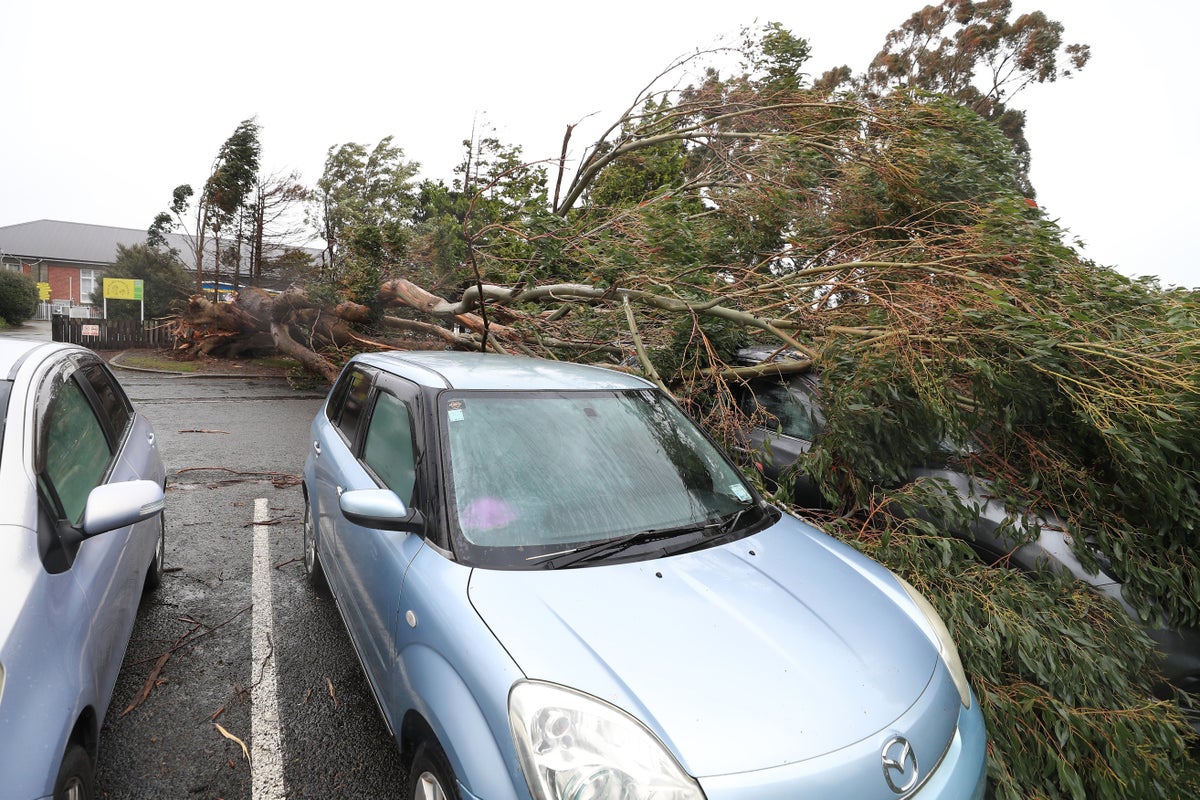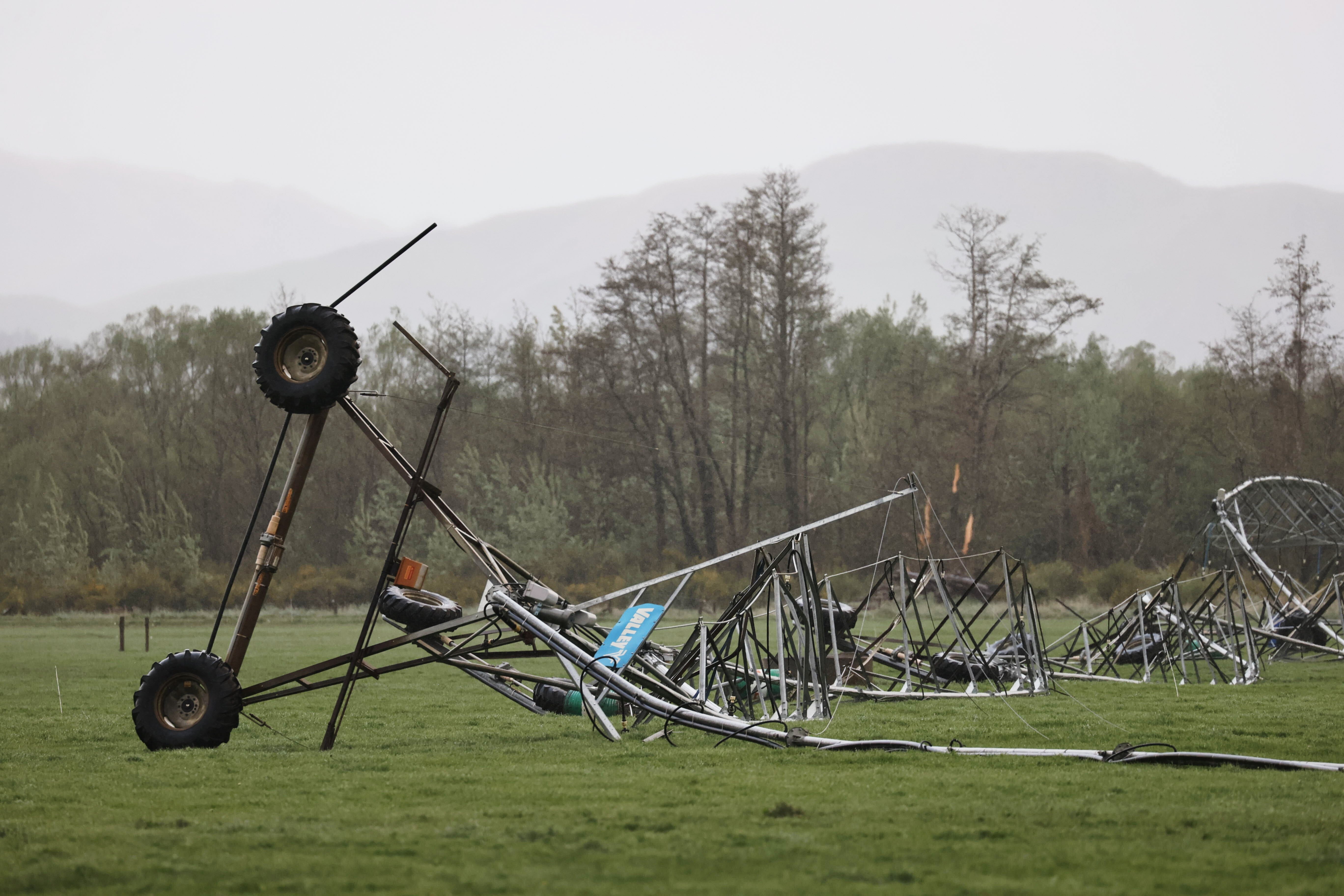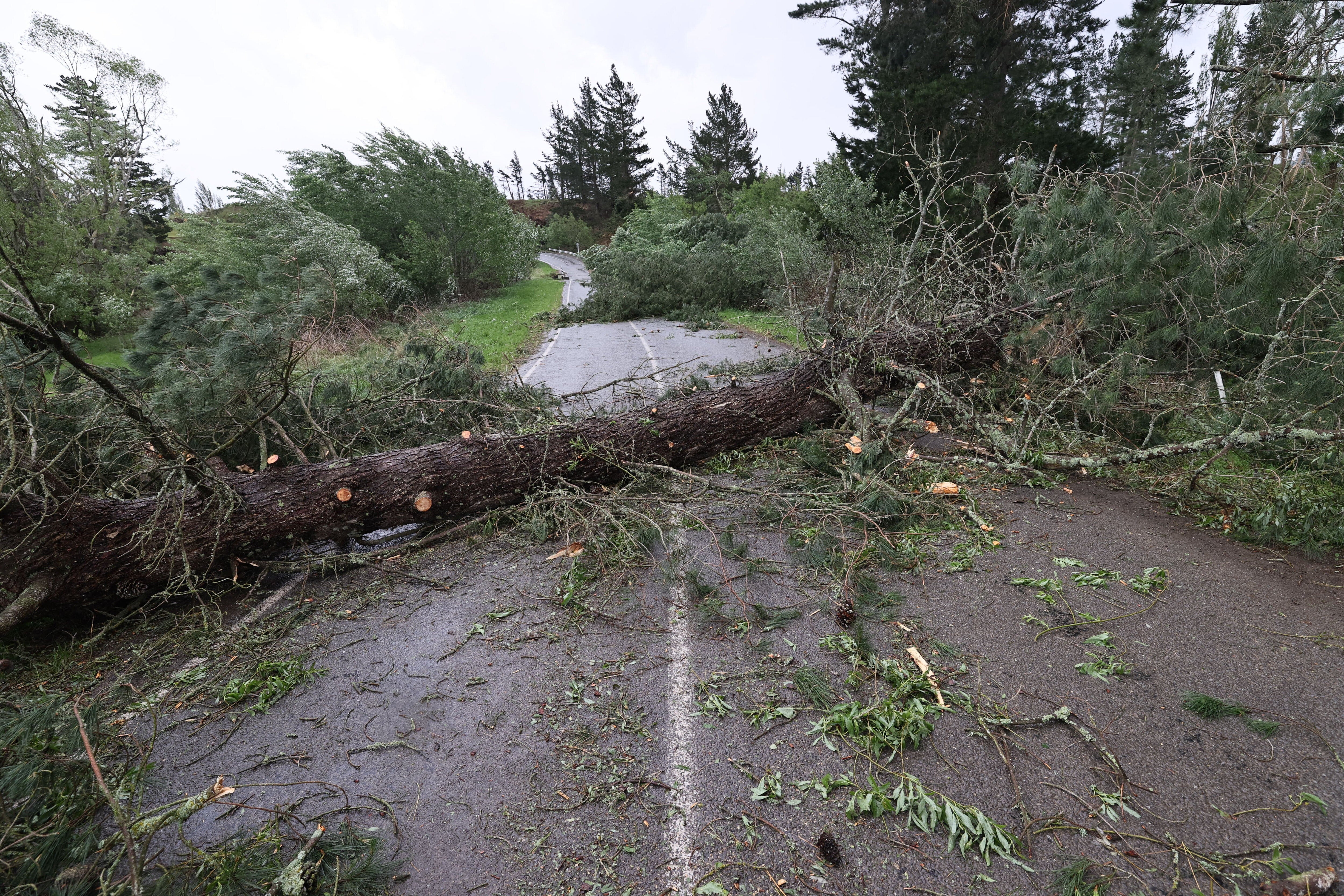
New Zealand was plunged into chaos for the second time in a week as dangerous winds caused disruption on Thursday. Hundreds of flights were cancelled, schools were closed, and electricity blackouts covered large parts of the country.
The capital, Wellington, located in the lower North Island, bore the brunt of the gales, alongside parts of the South Island, including Christchurch.
The national forecaster, MetService, issued rare “red” wind warnings – its highest alert level – for several of the regions affected.
While no deaths or serious injuries were reported from Thursday's severe weather, the country is still reeling from a separate weather system on Monday that saw a Wellington man killed by a falling tree branch.
The latest havoc also disrupted rallies that were planned by health and education workers to mark what is believed to be the country’s largest industrial walkout in decades.

More than 100,000 workers, represented by four unions, staged a four-hour “mega strike” after months of stalled negotiations with the government over pay and conditions.
More than 200 flights across New Zealand were cancelled on Thursday as some urban areas experienced wind speeds of 140 to 160kmph (87 to 100mph), with gusts in one remote, rural part of the South Island registering 230kmph (143mph).
Tens of thousands of properties were without power in different parts of the country. The wind downed trees, ripped off roofs, and in the city of Dunedin, toppled shipping containers at the port.
Dangerous winds also forced the closure of some highways. The remote west coast of the South Island was cut off by road after flooding closed the only routes to the area.
Weather dampened planned ‘mega strike’
Some rallies by teachers, doctors and nurses around the country whose unions had planned a coordinated strike on Thursday were cancelled due to the weather. Union leaders said workers were still on strike, even where demonstrations were called off.

Thousands still marched in the cities of Auckland and Hamilton, and hundreds of people turned out for demonstrations in small towns unaffected by the bad weather.
Hospitals and emergency rooms remained open to the public, but the government health agency urged people not to seek medical attention unless the matter was urgent. Medical staff at one hospital in the city of Nelson returned to work during the strike when the facility lost electrical power because of the high winds.
In the days before the strike, ministers in New Zealand’s centre-right government, which is often at odds with workers’ unions, lambasted the action, describing it as politically motivated. Union leaders rejected the charge, saying they had also held strikes under the previous centre-left government.
About half of those who walked off the job were teachers, and the rest included doctors, dentists, nurses, social workers, and other medical practitioners. Their demands varied between industries, but complaints about pay, staffing levels and working conditions were the central focus of the strike.
The action came amid steep government cuts to public spending, and record numbers of New Zealanders leaving the country, particularly for neighbouring Australia, where medical practitioners are lured by higher salaries and lower living costs.

Storm havoc due to ease by Friday
Several major highways remained closed on Thursday night, and residents of some South Island regions remained on alert as rivers rose and threatened to breach their banks. Winds were due to ease by Friday, although the authorities urged caution for travellers.
A ban on fireworks and fires was enacted for much of the country, and was expected to remain in place for the rest of the week, the national fire service said. The strong winds whipped up wildfires during both Monday’s and Thursday’s storms, and firefighters hadn’t been able to quell the worst of the blazes by Thursday night.
New Zealand’s location in the southern latitudes, along with the mountain ranges that run the length of the country, can produce wild weather throughout the year.
Flights cancelled as powerful storm prompts rare red warning in New Zealand
North Korea has stolen billions in cryptocurrency and tech firm salaries, report says
Australia and New Zealand issue extreme fire danger warnings as heat records tumble
British man dies while surfing in storm as friend who tried to help him also drowns
Person of interest in British girl’s disappearance named by MP
Man charged with stealing Labubu dolls worth more than £4,000







